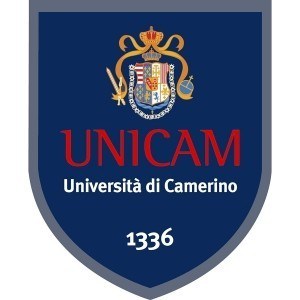Photos of university / #ucl
"The MSc in Modelling Biological Complexity at University College London offers an interdisciplinary approach to understanding the intricacies of biological systems through advanced computational and mathematical techniques. This program is designed for students who are passionate about exploring the complexities of living organisms, ecosystems, and biological processes by harnessing the power of modeling, simulation, and data analysis. Throughout the course, students will acquire a strong foundation in biological sciences combined with quantitative skills in mathematics, physics, computer science, and statistics. The curriculum encompasses a wide range of topics, including systems biology, network analysis, bioinformatics, computational modeling, and machine learning, enabling students to develop robust models that can predict biological behavior and inform experimental research. The programme is particularly suitable for those interested in research careers in academia, biotech, or healthcare, as it bridges theoretical understanding and practical application. Students benefit from cutting-edge facilities, expert faculty, and collaborations with industry partners, providing a comprehensive educational experience. The program emphasizes hands-on learning through project work, case studies, and research projects, preparing graduates to tackle complex biological questions using innovative computational methods. Graduates of this MSc will be equipped with the analytical skills, technical expertise, and scientific knowledge necessary to contribute to advancements in biological research and technology. The duration of the program is typically one year full-time, with options for part-time study. Entry requirements include a relevant undergraduate degree in biological sciences, mathematics, computer science, or related disciplines. This degree opens pathways to PhD studies, research roles in biotech companies, or positions within healthcare and environmental organizations, making it an ideal choice for students eager to engage with the frontier of biological complexity through modeling and computation."
Foundation courses use innovative teaching methods for interdisciplinary research to provide essential background knowledge in mathematical, computational and physical techniques and a broad introduction to core biological concepts and systems. A range of interdisciplinary research-driven projects follow in which students gain experience of different research techniques and a range of areas of biological interest.
Students undertake modules to the value of 180 credits.
The programme consists of four compulsory modules: foundation courses module, transferable skills module (20%), three mini projects (40%) and a research (summer) project (40%).
Core modules
- Modelling Biological Complexity: Foundation Course (non credit bearing)
- Transferable and Generic Skills
- Mini projects
- Research (summer) Project
Dissertation/report
All students undertake an independent research (summer) project, which culminates in a dissertation of up to 15,000 words, a short presentation and an oral examination.
Teaching and learning
The programme is delivered through a combination of lectures, laboratory work, case presentations, seminars, tutorials and project work. Student performance is assessed by essays, mini projects, oral and poster presentations, a computer programming and biological database task, web development, the research project and an end-of-year viva.
A minimum of an upper second-class Bachelor's degree in any area of the mathematical, physical, computer, engineering or life sciences from a UK university or an overseas qualification of an equivalent standard. For students from the life science, some mathematics experience is necessary (e.g. a minimum of an 'A' grade of A Level mathematics).
Limited funding is available for this programme - applications from self-funding candidates are also welcome.
Modelling Biological Complexity at University College London is a pioneering interdisciplinary program designed to equip students with the skills to analyze and interpret complex biological systems. The program combines principles from biology, mathematics, computer science, and engineering to provide a comprehensive understanding of biological processes at multiple scales, from molecular mechanisms to ecosystem dynamics. Students engage with cutting-edge modeling techniques, including computational simulations, data analysis, and systems biology approaches, enabling them to develop innovative solutions to real-world biological problems. The curriculum emphasizes hands-on learning through laboratory work, software development, and research projects that foster critical thinking and quantitative analysis skills. Graduates of this program are prepared to pursue careers in academia, biotechnology, pharmaceuticals, environmental management, and data science, among other fields. The program benefits from UCL's extensive research facilities, expert faculty, and strong links with industry partners, offering students a dynamic learning environment that bridges theoretical knowledge and practical application. The interdisciplinary nature of the course encourages collaboration across disciplines, reflective of the modern scientific landscape where complex biological challenges require multifaceted approaches. Students also have the opportunity to participate in internships and international research collaborations, further enhancing their professional development. The degree is suitable for students with a keen interest in understanding biological complexity through quantitative and computational lenses, aiming to address pressing issues like disease modeling, ecological sustainability, and personalized medicine. Overall, the Modelling Biological Complexity program prepares graduates to be innovative thinkers and skilled practitioners capable of advancing scientific knowledge and contributing to technological and societal progress in biological sciences.









